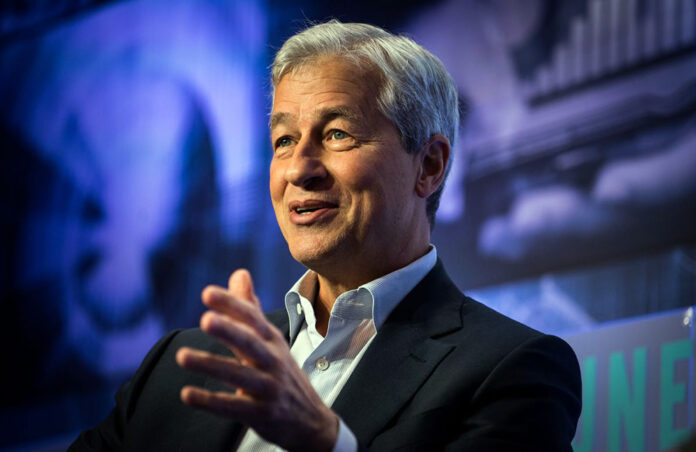(TibetanReview.net, Nov25’21) – Joking about the sustainability of the rule of the Communist Party of China is a seriously bad idea and Jamie Dimon, the CEO of the JPMorgan (JPM), America’s biggest bank, has been swift and profuse in offering apologies for doing so lest should it affect the bank’s businesses in China.
Referring to the Communist Party of China’s recent celebration of its 100th year and so also of JPM’s own recent celebration of a century of operating in China, Dimon had said, “And I’ll make a bet we last longer” while speaking at an event in Boston on Nov 23.
But the very next day, Dimon issued a statement, saying, “I regret and should not have made that comment. I was trying to emphasize the strength and longevity of our company.”
A JPM spokesperson said the bank was committed to China and that Dimon had made clear during the discussion in Boston that “China and its people are very smart and very thoughtful,” reported the edition.cnn.com Nov 24.
“Dimon acknowledges that he should never speak lightly or disrespectfully about another country or its leadership,” the spokesperson was reported to have added.
Dimon’s remarks sparked a swift reaction from China, with Hu Xijin, editor of the state-backed Global Times newspaper, saying on Twitter: “Think long-term! And I bet the CPC [Chinese Communist Party] will outlast the USA.”
Hu has not seen any reason, like Dimon, to apologise to the American people or government for this remark.
Also, Chinese foreign ministry spokesman Zhao Lijian has said at a news conference on Nov 24, “Why the publicity stunt with some grandstanding remarks?”
***
The report noted that JPM had made significant inroads in China in recent years, where it has enjoyed certain privileges. Earlier this year, the lender won approval from regulators to assume full ownership of its China securities venture, a sign that the country was further opening up to international businesses.
In a statement at the time, Dimon was reported to have called China “one of the largest opportunities in the world for many of our clients and for JPMorgan Chase.”
During the Boston College event, where he gave a wide-ranging talk on the United States, China and other topics, Dimon has compared the political and economic approaches in both countries. He had said that in the United States, “we have the gifts of our founding fathers: freedom of speech, freedom of religion, freedom of enterprise, freedom of human capital, immigration.”
And then he has remarked, “If you opened up the doors of America, a billion people would come here. If you open the doors to China, how many people do you think will go there?”
“[An] autocratic … economy doesn’t work particularly well as a country gets much more sophisticated. And I’m not saying this to be angry to China. I think they have done a better job managing that country than we would have done at managing that country. They are very smart.”
***
“Dimon’s apology shows the degree of deference foreign businesses have to show to the Chinese government in order to remain in its good graces and maintain access to the country’s markets,” bbc.co.uk Nov 25 quoted Eswar Prasad, a professor at Cornell University, as saying.
He has said Dimon’s swift apology was designed to mitigate any damage.
And damage could be significant.
The report noted that global executives typically choose their words carefully when discussing China, where foreign companies have occasionally been subject to a backlash for perceived offences.
Swiss bank UBS ran into trouble in 2019, after a remark by one of its senior economists about food inflation and swine fever was interpreted as a racist slur. He was suspended for three months and UBS lost a lucrative financial contract with a state-backed client.
Earlier this year, Swedish fashion giant H&M and US-based Nike faced pushback from Chinese state media and ecommerce platforms after expressing concern about allegations of forced labour in Xinjiang, the report added.



